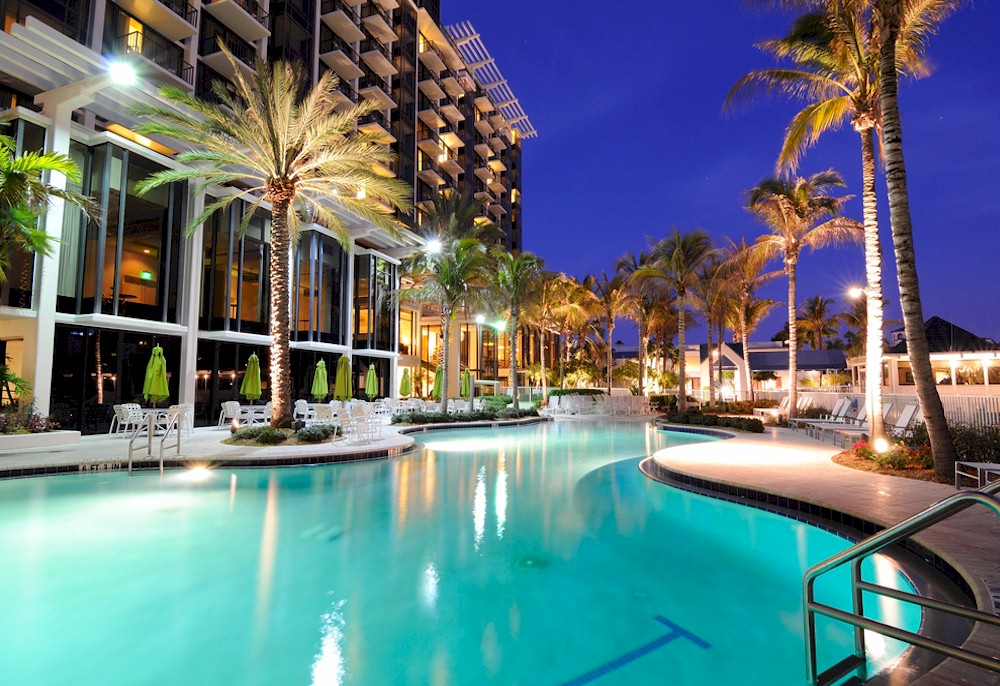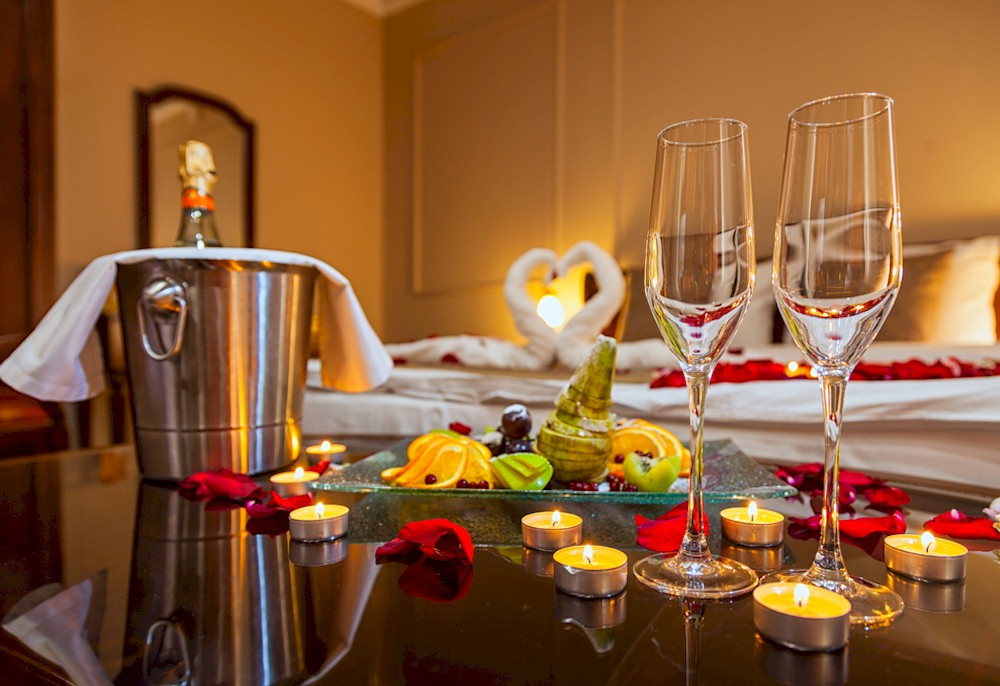HotelExecutive: 4 Trends Shaping the Future of Hotel Experiences and How to Best Monitor Customer Loyalty19.03.2024
4 Trends Shaping the Future of Hotel Experiences and How to Best Monitor Customer LoyaltyBy Kim Lawton Founder & CEO, Enthuse Marketing Group | March 2024
Traveling is so much more than the "where" of it all. The "what" has grown in importance over the last few years, especially in the age of personalization. People aren't just traveling to a given destination. They're traveling for the experience, and a large part of that experience hinges on their accommodations and its offerings - a fact not lost on most brands in the hospitality industry. In recent years, an increasing number of hotels have been revamping their offerings to better align with the expectations of the modern traveler, all in an effort to redefine the traditional stay and enhance the overall guest experience. The Ritz-Carlton Hotel Company did just this in its partnership with Asprey, tapping the luxury goods brand to supply guestroom amenities across its portfolio of hotels. Here, you'll also find a line of Purple Water products, the brand's signature scent, available in all Ritz-Carlton gift shops. Fairmont Hotels & Resorts did something similar with its partnership with Le Labo, launching a distinctive in-room amenity line that features Rose 31, yet another signature scent. The partnership has also yielded customized packages, signature guest experiences, and luxury products only found at Fairmont locations. That was just the beginning.
The list quite literally goes on and on. By curating the hospitality experience with select room scents, linens, mattresses, snacks, beverages, and more, hotels are able to stand out in what's rapidly become a competitive marketplace. Making guests feel pampered, treated, and taken care of (especially to their own unique preferences) has a way of establishing a stronger brand affinity with that hotel, typically leading to repeat stays and word-of-mouth referrals. In turn, those establishments with the strongest of brand affinities can charge premium prices for their accommodations and services, noting that 38% of travelers are willing to pay more for travel experiences that deliver highly personalized information and services. Monitoring Loyalty From Customers Exclusive experiences and brand-hotel partnerships have influenced guest loyalty for many years, as they tend to create more comfortable, welcoming, and unique environments for consumers during their stay. It's only natural that the guest would choose to return to this brand of accommodation when it's time to travel again, even if they're traveling to an entirely different destination. The decision to stay at another of your locations should be almost immediate. As with any relationship, however, a great deal of care and attention must be involved to keep your brand top of mind. You'll want to nurture that relationship and understand where you stand with those you promise to serve. Guest retention rates are a good starting indicator, as this metric often reflects guest satisfaction, loyalty, and the effectiveness of your engagement strategies. Plus, with technology these days, it should be fairly easy to pull up repeat bookings through a reservation system or loyalty program database to determine the strength of your retention and repeat customers. To further gauge guest satisfaction and loyalty, other metrics can often be much more explicit. Net promoter score (NPS) directly measures both, as it provides direct insights into how likely any given guest would recommend a stay at your hotel. If you're not familiar with NPS, guests are asked to rate their stay on a scale of 0 to 10. Responses are categorized into Promoters (9 to 10), Passives (7 to 8), and Detractors (0 to 6). Your overall score is then calculated by subtracting the percentage of Detractors from the percentage of Promoters. By implementing quick, 1-2 question surveys that deploy at the conclusion of a guest's stay, you often can quickly assess their intention to return or recommend... or not. While you can certainly determine sentiment through follow-up surveys, another stronger indicator will be brand mentions and referrals on social media - which, naturally, leads to the next tool of measurement: user-generated content (UGC). Photos and videos shared by your guests on social media channels act as authentic endorsements of the hotel experience. It can enhance the hotel's online presence and appeal to other potential guests. Ensure your brand is monitoring social media platforms for mentions and hashtags related to your hotel, and consider social media monitoring software as it can easily help track and quantify content and the sentiments around it. Word-of-mouth (WOM) recommendations are another source that your brand should be cognizant of, as this, too, reflects guest satisfaction and willingness to forwardly promote their experiences with others. Here, brands should make it a point to prompt guests upon booking or checking in to learn how they became aware of the establishment, and consider offering incentive programs to further boost referrals and recommendations. Last but not least, online reviews on travel sites are more important than ever. Similar to word-of-mouth recommendations, positive reviews can enhance a hotel's reputation and visibility, and though sometimes difficult to swallow, negative reviews can offer insights into areas for improvement. All it takes is monitoring and analyzing posts on popular travel sites (i.e., TripAdvisor, Google, Booking.com, etc.) to get a better idea of what people are saying. And if you're looking for exact metrics, consider tracking average star rating, number of reviews, and similar measurements - and do so with regularity. If something were to change, you'd want to know as soon as possible.
Leveraging Key Trends to Your Advantage The hospitality industry often feels in flux, but there are several trends you should pay attention to for the coming years. Here are just a few: 1. Give Guests Even Greater Control As competition grows and consumer loyalty wanes, personalization will remain vital for hotel brands - something they've long been well-positioned to offer. It's all a matter of leveraging the data available to understand what exactly guests value in accommodations, interactions, amenities, services, and more. Past stay histories, feedback from previous visits, and even consumer profiles all offer insights into how to best shape the experience for the individual and make each guest feel like you know them at their core. Doing "personalization" at scale can be difficult, however. Relieve some of the burden by giving greater control to your loyalty program members. A customizable guest experience program, for example, allows guests to choose room types, amenity scents, beverage and snack options, and certain concierge services before their arrival. This program also provides an opportunity to serve as a local guide, offering suggestions on points of interest in the area based on individual preferences. Kick the experience up another level with a more responsive communication system that allows guests to continue requesting specific services or amenities during their stay. 2. Balance Technology and the Human Touch Speaking of more responsive communication systems, younger generations are technological natives. That much is hard to deny. As Gen Z and Millennials invest in more frequent trips and "bleisure" travel, you will inevitably need to weave technology into not just the very fabric of the guest experience, but the overall customer journey. Otherwise, you risk failing to meet their accessibility expectations. Keep a keen eye on emerging trends in hospitality tech, and consider early adoption of innovations that improve efficiency, accessibility, convenience, speed, and so on. Even so, technology alone rarely, if ever, will elevate the guest experience to the level expected by these experiential generations. It will be just as important to provide an option for human touch at every stage of the guest's lifecycle. Train onsite staff to use technology to enhance guest experiences. Establish protocols for tech-related issues, ensuring staff can provide immediate and effective solutions when digital systems break down or fail to meet specific guest needs. Most importantly, ensure each team member understands how to best represent your brand throughout every interaction. 3. Partner Wisely When considering brand partnerships for in-room snacks, beverages, note that food and beverage offerings in the hospitality industry have (and will continue to) become more versatile, creative, and innovative. The reason for this comes down to a few reasons, but mainly Gen Z's diverse dietary preferences. Clean eating, mindful eating, and plant-based eating are just a few of the most followed eating patterns. By partnering with key brands and collaborating with local culinary experts who know the food and beverage market best, their industry expertise will lessen the burden on your establishment and help introduce unique dining experiences that reflect the interests of your target consumer through local culture and cuisine trends. Apart from catering to various dietary needs and preferences, it will also be important to reevaluate dining spaces, the presentation of dishes, and so on. Inspiring Instagrammable moments is the goal here. Unfortunately, there's no one-size-fits-all strategy to encourage guests to share images on their social media feeds - plus it should change periodically (within reason) to keep your audience engaged and your environment from falling flat. But you can never go wrong with interesting focal points that are visually appealing yet still align with your brand identity. You want environments and experiences that drive UGC and thus generate organic marketing content. 4. Embrace Sustainability Consumers have slowly but surely been moving their spending habits toward brands with environmental, social, and governance-related claims, at least that's according to a 2023 McKinsey report. And these findings appear to be consistent for all brands, including those in the hospitality industry. SurveyMonkey found that 60% of travelers would rather stay at hotels with eco-friendly practices, while nearly 37% would even pay more for such an option. In other words, implement eco-friendly practices, like using renewable energy sources, reducing plastic use, offering recycling options in guest rooms, using organic/sustainable products, and the like. Also, engage in community-based sustainability projects, such as local clean-up drives or partnerships with environmental organizations. Invite guests to participate, enhancing their connection to the locale and your brand. Though there will be an upfront investment, the move will eventually pay for itself - either by reducing waste and energy usage or increasing interest in your hotel. The modern traveler is looking for more than just a place to lay their head. They now expect truly exceptional experiences, whether those experiences involve amenities, services, dining, shopping, or a combination that falls somewhere in between. Deliver on that, and you'll be the hotel brand that people remember and return to time and time again. HotelExecutive retains the copyright to the articles published in the Hotel Business Review. Articles cannot be republished without prior written consent by HotelExecutive. |
| 24.04.2024 | Hotelexecutive: The Rise of Sleep Tourism |
| 11.04.2024 | Travelmarketreport: Delta Air Lines is Changing The Way It Boards The Flights |
| 03.04.2024 | The Washington Post: Americans are spending big on eclipse tourism |
| 26.03.2024 | TRAVEL+LEISURE: 12 Best Resorts in Florida |
| 23.03.2024 | Have you heard of RiseNY? |
| 20.03.2024 | TravelmarketReport: First Look at the New International Terminal at New York?s JFK Airport |
| 19.03.2024 | HotelExecutive: 4 Trends Shaping the Future of Hotel Experiences and How to Best Monitor Customer Loyalty |
| 13.03.2024 | HotelExecutive: Elevating Hospitality: the Role of Entertainment in Hotels |
| 09.03.2024 | TravelWeekly: Big brands, boutiques spice up the New Orleans hotel scene |
| 19.02.2024 | Uusinta uutta New Yorkissa |
|
Siirry arkistoon » |



 Ms. Lawton
Ms. Lawton